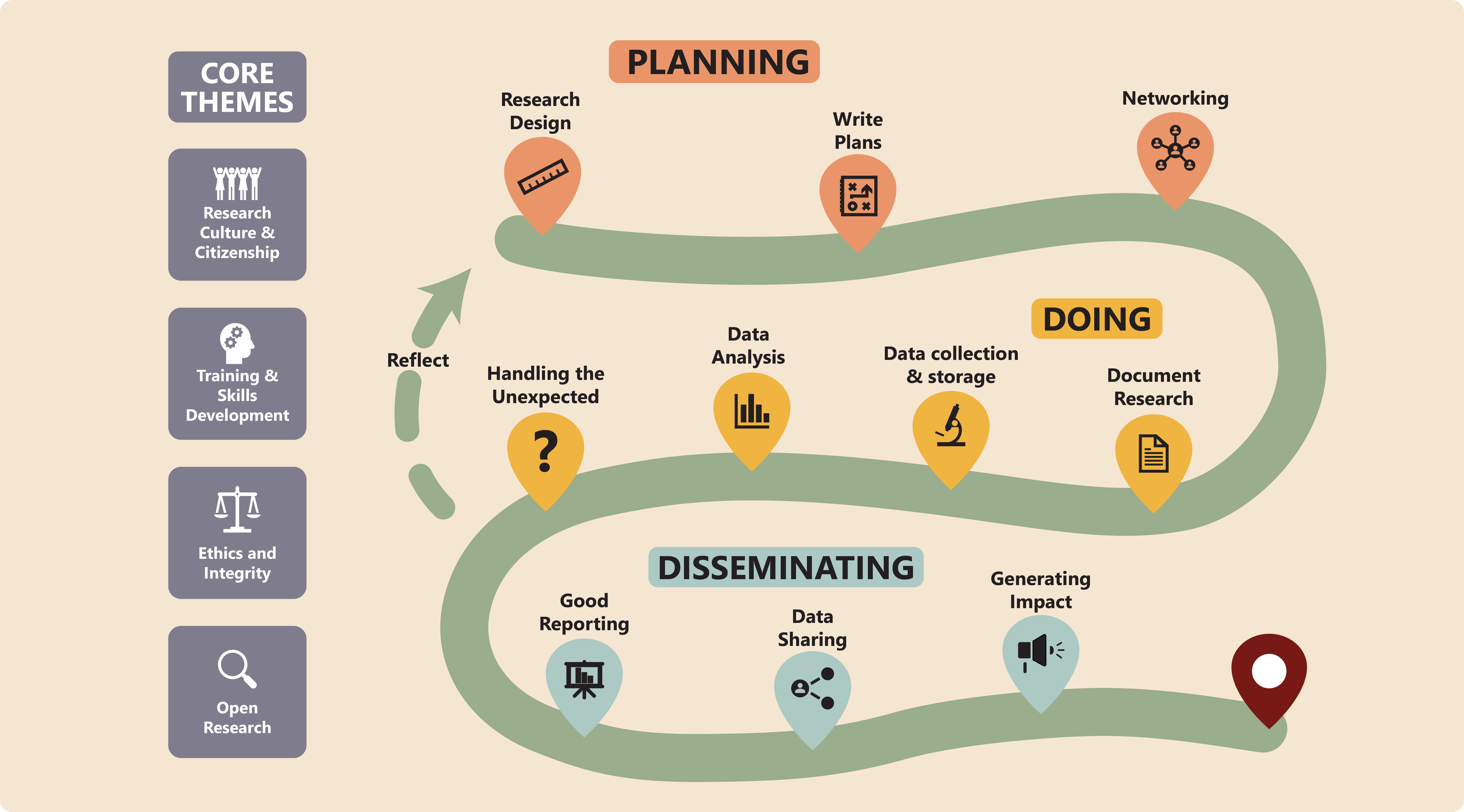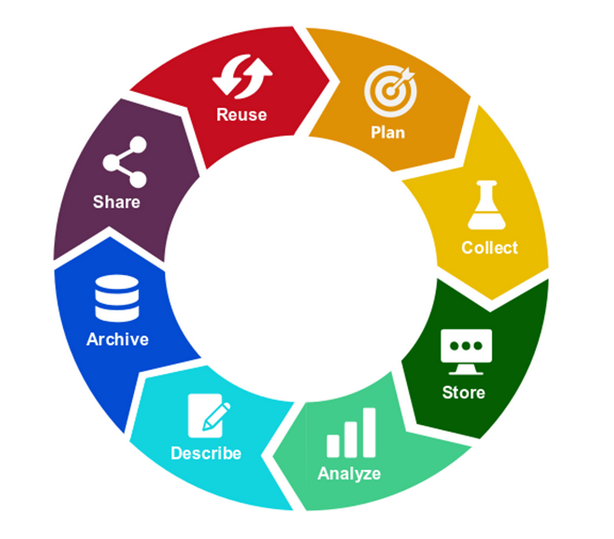Write Plans

Pre-registration and protocols are a method to write and/or publish a record of your hypotheses and methodology before undertaking any analysis. They help you adequately plan your research ahead of time and help combat common detrimental research practices.
Prepare a Data Management Plan
-
A Data Management Plan (DMP) outlines how your research data will be managed throughout a project (and beyond). Having a DMP mitigates future data management issues by anticipating and addressing potential challenges from the start of a project.
-
Your DMP should be regularly reviewed and amended if necessary – they are flexible and can be adapted as your project progresses or changes focus.
-
A DMP should include details of the types of data you will generate, the anticipated volume of your data, where data will be stored (short and long term), how data will be shared (if appropriate) and how you will make your data open - ‘as open as possible, as closed as necessary’ is the phrase used by the European Research Executive Agency to describe their Open Science principles.

Consider writing a study protocol
-
A protocol is a clear and detailed description of the plans and methods that you will use written before starting your research. Writing a protocol will help you identify and address any potential problems with your research plans before you start.
-
Writing a protocol before conducting your research for processes such as data collection and analysis helps combat detrimental research practices such as publication bias (selectively publishing only some findings), p-hacking (manipulating data to achieve certain P-values), HARKing (hypothesising after results are known) and results fishing.
-
Advantages of publishing a protocol include improvement to your protocols via peer review, expanding your publication record, increased transparency, and helping your field move faster.
-
Scope out possible platforms and formats for your study protocol, and endeavour to write a protocol for all your projects or project stages.
-
Scope out any existing templates or examples of protocols from the type of study you’ll be conducting (e.g. protocols.io and university guidance).
What information would you include in the study protocol and data management plan for your project?
- Benefits of published protocols according to a major scientific publisher
- UoE information on protocols.io (please note: as of 2025, the University no longer subscribes to the premium plan, but you can use the basic functionalities)
- UoE Research Data Service information on protocols (includes webinars)
Consider pre-registering your study in an open repository
-
Preregistration is a practice where researchers publicly register their research plan before conducting their study. This includes details such as research question, hypotheses, study design, data collection methods and planned analyses.
-
Benefits of study pre-registration include limiting publication bias and making your own research more rigorous and transparent.
-
Consider alternative options like publishing a Registered Report: an article where methods and analyses are preregistered and peer-reviewed prior to the study being conducted. This review process, and potential modifications to the study design based on expert feedback, lead to provisional acceptance of studies that are deemed methodologically sound.
-
Explore different repositories (e.g., Open Science Framework (OSF), The University of Edinburgh DataShare, journal or funder-specific repositories) and consider which is most suitable for your research.
Would you consider pre-registering your project?
- Open Science Framework (OSF)
- What are registered reports and why are they important? (Royal Society)
- Dirnagl, U., Preregistration of exploratory research: learning from the golden age of discovery. Plos Biol 2020 Mar; 18(3): e3000690. https://10.1371/journal.pbio.3000690
- Pre-registration (Center for Open Science)
- Nosek, B. A., Ebersole, C. R., DeHaven, A. C., & Mellor, D. T. (2018). The preregistration revolution. Proceedings of the National Academy of Sciences, 115(11), 2600–2606. https://doi.org/10.1073/pnas.1708274114
- 7 selfish reasons for pre-registration (Association for Psychological Science)
- “Registered reports” (the Turing Way)
- OSF Pre-registration and Registered Reports: a Primer from UKRN
- OSF Registered Reports Wiki
- OSF Templates of OSF Registration Forms